Mozambique activist raises sexual health awareness
Berta Bimba is in her early 20s and got into activism to spread awareness about sexual health issues, education, and to get people like her, who have spent time on the streets, into jobs and a new future.
Francesco Piazessi from Mexico builds sustainable homes for the poor
Do you know of a similar project in your country? Tell us about it!
African livestock insurance scheme pays out first claims
Andrew Mude, the man behind an innovative livestock insurance program, reflects upon the scheme’s successes so far – and its future potential.
Check out DW’s interview with Andrew Mude.
Here’s more about the International Livestock Research Institute.
What kind of unique insurance program would your community need? Share your thoughts!
Syrian activist uses mobile phones to campaign for freedom
Syria is not experiencing a Facebook Revolution; it’s more of a mobile phone uprising. And 24-year-old activist Rashid is risking his personal safety to fight for democracy in his country.
Syrian activist uses mobile phones to campaign for freedom
From reporter Reese Erlich:
Erbil, Kurdish Region, Iraq
I wasn’t sure what to expect when setting up an interview with a grassroots leader of the Syrian opposition. We were both staying in the relative safety of Iraq’s Kurdish Region, far from the long arm of Syria’s Mukhabarat (military intelligence).
But still, Ciwan Rashid didn’t want to meet me at home. We agreed to do the interview on a crowded Erbil street with a shopping mall and restaurants. He gave me his name, but it’s a nom de guerre.
Rashid lives in the predominantly Kurdish region of Syria. Kurds have long faced discrimination at the hands of the Syrian government. Rashid says all Syrians face repression, but “Kurds in Syria faced even more repression than others.”
Rashid, like many other Syrians, watched the Tunisian and Egyptian uprisings with great anticipation. In Syria, demonstrations started in Damascus in March, caught fire in the southern town of Dara and ultimately spread to the northern Kurdish cities as well. Rashid immediately joined the protests.
“I wasn’t afraid,” he told me. I asked why not. After all, people were being arrested, tortured and killed. “There are two choices,” he said. “One is to escape and survive. The second is to die. If I survive, I will have my freedom.”
Young Swede lends a hand on traditional Japanese rice farms
Richard, a 20-year-old Swede, is dedicated to learning the traditional art of harvesting rice in Japan and helping farmers get back on their feet after the tsunami disaster.
Get involved
Are you or someone you know doing something big or small to change your community, your city, your country – or even the world? Tell us about it!
Post the link to your blog or website here, or simply share the story yourself. Send us an email at feedback.english@dw.de or comment below.
Serb teen blogs about democracy
Unlike most teens, 13-year old Belgrade native Rastko Pocesta is concerned about the direction of his nation. So much so, that he’s devoted himself to the life of a political commentator and human rights activist.
Serb teen blogs about democracy
Rastko Pocesta is a politcal commentator for his blog Heimatlos. Here you can read all about his musings on the state of worldwide politics. Although it’s inspiring (and downright impressive) to read Raskto’s intellectual observations, he’s actually received threats from far-right groups in Serbia for sharing his anti-nationalist views.
Reporter Melanie Sevcenko on meeting Rastko:
I met Rastko one sunny Saturday afternoon in Belgrade. We exchanged a few text messages to arrange a meeting, but I suggested his flat downtown, since I wanted to get a glimpse of his liar, where he writes is proactive blog Heimatlos about Serbian and global politics. After googling Rastko online to get a little background information, I soon realized he was a bit famous, having appeared in the international media. So I have to admit, I was a little nervous gearing up to meet the boy wonder! At promptly 2:00 pm, Rastko opened the door to his ground floor apartment, which he shares with his mother, very shyly peeping his head through the crack in the door.
My colleague and I entered his humble flat and took a look around, attempting to make small talk while we set up the camera and microphone. Rastko was dressed in a suit jacket, collared shirt, neat slacks and shiny black shoes. His straight shoulder-length hair gave him a sort of scholarly sophistication, but it was obvious he wasn’t used to interviews. He is, I kept having to remind myself, only 13 years old. I asked him questions about his work, his blog, his political views on his nation and his thoughts about kids his age. Getting him to open up in a personal way was a challenge, but he spoke clearly and articulately about politics, so it was enough to understand his passions and his place within Serbia. But above all else, I was surprised by his nonchalance towards his endeavors and the public’s perception of him – some are quite supportive, while others have made violent threats.
But Rastko has vowed to never step down and to never stop fighting for what he believes in, which is a true test of democracy. For Rastko, it seems only natural to take on such a responsibility as he has, especially at such a young age. Raskto is a defender of human rights and a self-proclaimed Marxist, democratic socialist, pacifist and anti-capitalist, which is quite a hefty title for someone barely in his teens. But most important are Rastko’s intentions and visions. He seeks a more open society in Serbia and a better world for people who are oppressed – whether immigrants, minorities, or gays – and for people who think differently, like himself.
It was a delight to meet Rastko and an eye-opening experience to witness how much young people can actually do in their worlds, no matter how tiny they may seem to others.
Dutchman revives social activism among his peers
Jeremy in Utrecht is bringing activism back to life in The Netherlands. He’s mobilizing Dutch students with debates and movie nights in the city of Utrecht.
Dutchman revives social activism among his peers
Check out the website of Jeremy’s organization, Basta Debat.
From DW reporter Laura Potsma:
There is a little sticker that I have noticed in a couple of cities in the Netherlands. It has a black and white image of the Dutch right-wing politician Geert Wilders and it is crossed with a thick, red cross. I have no idea who is behind these stickers, but I had always seen it as a form of silent activism. Physical protests have become rare in this country, but I hadn’t even realized that until I met Jeremy.
Jeremy reminded me that the Netherlands has always been a country with a rich activist movement. Other countries took us as an example, like the Germans did in the 1980s. And when I thought about it, it seemed to make sense that a liberal, open-minded country like the Netherlands would have lively groups of activists.
Why this has changed in the last two decades, I don’t really know. But Jeremy has shown me that even though the Dutch streets seem empty of demonstrators, activism is not dead in the Netherlands. His determination to fight for justice, for causes he strongly believes in, was a great learning experience for me. He wants his voice to be heard, even if there is sometimes only one person listening. And that is the opposite of silent activism.
Palestinian artist gives hope to community under occupation
Eid, a 26-year-old Palestinian Bedouin, turns scrap material into art. His own house may be facing imminent demolition, but he is determined that his children will inherit his capacity to dream.
Palestinian artist gives hope to community under occupation
Watch a short documentary film about Eid here.
From DW reporter Kate Laycock:
I first met Eid in November 2010, when I visited his village in the Occupied Palestinian Territories in the company of a mutual friend.
Although many people had tried to describe Eid to me, nothing could have prepared me for the emotion of the encounter.
Here is a young man living in one of the poorest areas of the occupied West Bank. The villages live in rickety concrete dwellings with corrugated iron roofs. Almost all the homes in his part of the village have demolition orders on them. The bulldozers could come at any time.
And yet he dares to dream.
Adoptive mom in Uganda provides food and love to 13 girls
Four years ago, Katie Davis was homecoming queen at her high school in the United States. Today, the 22-year-old is a single mother of 13 girls in Uganda and feeding hundreds of hungry children every day.
Adoptive mom in Uganda provides food and love to 13 girls
In 2008, Davis started a non-profit organization called Amazima, which means “truth” in the Lugandan language. With help from donors, Amazima sponsors 400 orphaned or vulnerable children to go to school. It also assists them with food, medication, and school supplies to ease the burden on their parents or relatives and ensure that the children can be raised by Ugandans in Uganda. The job of director supports Davis and her foster daughters in Uganda.
When she’s asked if 13 girls are too many to care for, Davis is adamant that she can handle it and says the courts in Uganda agree. For each girl, a judge has ruled that Davis’ guardianship is in the child’s best interests. Davis still needs to gain legal guardianship of some of the girls, which costs $3,000 in legal fees. She’s authored a book to be released in October, called “Kisses from Katie,” to raise the money.
A child welfare official in Uganda, Caroline Bankusha, says 13 girls in one foster home isn’t ideal, but concedes that so many children in Uganda suffer from poverty and lack of care that exceptions must be made.
While Davis wants to adopt the girls, she’s too young. Under Ugandan law, adoptive parents must be 25 years of age, and at least 21 years older than the child to be adopted.
“I think that’s definitely something that I was made for, and God just designed me that way because he already knew that this is what the plan was for my life, even though I didn’t,” she said.
Check out Katie’s blog here.






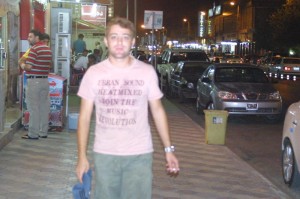
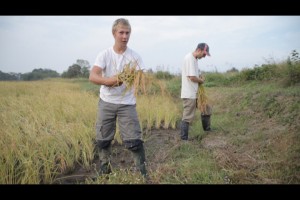
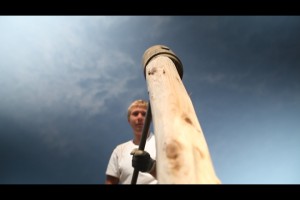

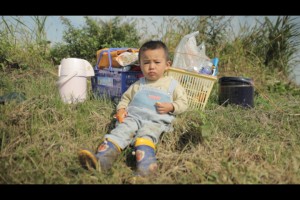

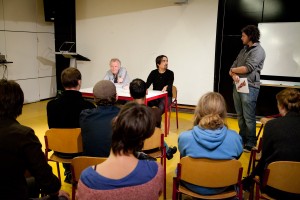
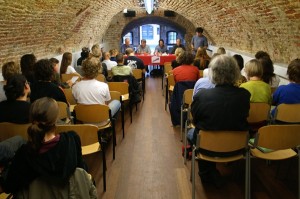
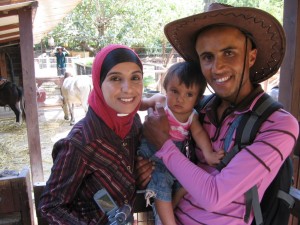








Feedback